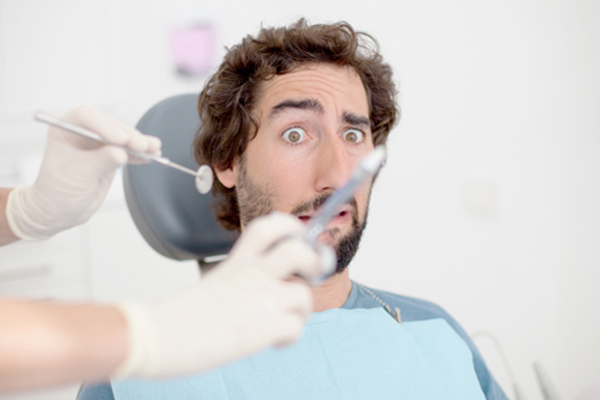Ask a Complete Health Dentist: What Does an Oral Cancer Screening Involve?

According to the American Cancer Society, over 30,000 new oral cancer cases are discovered yearly, with up to 7000 of that number resulting in death. Fortunately, routine oral cancersscreening allows the complete health dentist to diagnose the condition in its early stages, during which chances of successful treatment are higher.
An overview of oral cancer
Oral cancer is a life-threatening condition that starts without any noticeable sign at first. Therefore, the screening done by the dentist is imperative. Oral cancer can start from different histologic types, including teratoma, melanoma and adenocarcinoma. The most prevalent oral cancer is the malignant squamous cell carcinoma, which starts around the lip and mouth tissues. Oral cancer can start from different oral cavity parts or maxillofacial areas, including the mouth, tongue, lips, gums, face, salivary glands, and the oropharyngeal areas. Up to 75 percent of oral cancer cases can be traced to lifestyle habits such as tobacco use, smoking and alcohol intake.
Oral cancer screening
The treatment has a higher success rate when patients get an oral cancer diagnosis in the early stages. Patients need to visit the dentist immediately if they notice any anomaly around the tongue, gums or mouth area. During the oral cancer examination, the dentist will carefully check the oral and maxillofacial areas for signs of pathologic changes. They will be looking for signs like:
- Red patches around the tongue surfaces, mouth floor, as well as persistent white or pink that refuse to heal and sores that heal slowly and are prone to bleeding, could be a sign of cancerous changes.
- Lumps – any form of tissue thickening around the oral cavity
- Leucoplakia – tough, slightly elevated lesion that appears white or gray at any part of the mouth. Leucoplakia can indicate cancer or turn cancerous without treatment.
Oral cancer screening is a comfortable and straightforward procedure. There is a visual and physical examination, during which the dental professional will search for anomalies and touch the face, neck and glands for abnormal bumps or lumps. Some dentists use lasers during oral cancer screening to detect pathologic changes from normal tissues. The laser can reach beyond the surface of the oral tissues and reveal lesions hidden from the naked eyes.
In case the dentist finds any abnormality like lesions, lumps or leukoplakia, they will immediately request additional tests and develop a treatment plan. This could involve watching the lesions to see if they disappear after a few weeks. If there is no significant improvement, the dentist will perform a biopsy of the area, which means test tissue or cell samples for cancer. The biopsy will help detect the actual progress of the condition and the severity of the oral lesion.
The dentist will make a diagnosis of oral cancer if the epithelium’s basement membrane is damaged. Malignant cancers can quickly spread to other oral and maxillofacial areas, causing significant complications. Treatment methods depend on the actual diagnosis, but the process often includes radiation therapy, excision and chemotherapy.
In summary
The complete health dentist will check for changes and lesions when you visit the dental office for oral cancer. Dental professionals typically recommend undergoing the screening at least once annually.
Request an appointment here: https://www.mysaratogadentist.com or call My Saratoga Dentist PLLC at (518) 675-3094 for an appointment in our Saratoga Springs office.
Check out what others are saying about our dental services on Yelp: Oral Cancer Screening in Saratoga Springs, NY.
Recent Posts
Routine dental checkups often include preventive measures that go beyond cleaning teeth. An example is the oral cancer screening. General dentists recommend these screenings to detect early signs of oral cancer, which can significantly improve treatment outcomes. Understanding the role of oral cancer screenings and what to expect during them can help you decide whether…
A general dentist professional would be the most obvious choice of people to go to get an oral cancer screening. Because your dentist has most likely seen you before, they will be able to screen your mouth without any issue.Since a lot of people are not educated on oral cancer screenings, the most common questions…
While examining the inside of the mouth is already a typical part of a regular dental check-up, for many people it is also worth scheduling an appointment for an oral cancer screening. The American Cancer Society predicts that more than 53,000 people will be diagnosed with oropharyngeal or oral cavity cancer in 2020, and together…
Gum disease treatment is an important part of comprehensive oral healthcare. A family dentist can address gum issues when they first appear, which can preserve your smile and improve your overall oral health. These dental professionals offer a variety of gum disease treatment options based on the stage and severity of the condition.Gum disease, medically…


